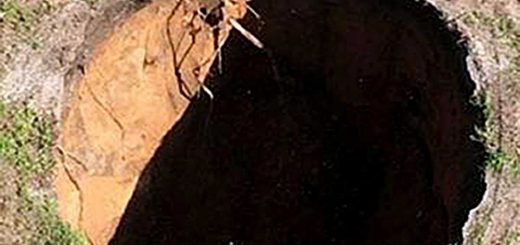The Avinu-Malkenu Paradox, Resolved

Since Rosh HaShanah, we have said the beautiful prayer Avinu Malkenu – our Father, our King – numerous times. Painfully aware of our inadequacies, we approach God, our benevolent father and ruler, and beg Him to bless us in every possible material and spiritual way. Its first and last lines read:
Our Father, our King, we have sinned before You….
Our Father, Our King, show us grace and answer us, for we have no [good] deeds. Perform acts of benevolence and kindness for us and save us.
The text is familiar, yet the opening phrase of each line expresses a surprising reality about our perception of God, touching on what is sometimes called the ‘immanence-transcendence paradox’. It is axiomatic that God is distinct from everything in creation, perfect and unbounded in every way – as the ruler of the universe, He transcends it. Yet we also perceive Him as our Father, concerned and intimately involved with the affairs of each of us, our constant support and rock. Struggling with this contradiction is a feature of any meaningful religious life.
In the Avinu Malkenu prayer, the paradox is simply stated: it is acknowledged in every line, but not resolved. When we stand before God we ask Him for life, health, success and redemption as though He were our father, yet simultaneously we recoil in awe, overwhelmed to stand in the presence of transcendent, wholly other-worldly, power. We sense that we may have to live with the paradox and not let it overly trouble us.
That is until the Ne’ilah, (closing) service of Yom Kippur. Just before finishing ten arduous days of prayer and introspection, we again say Avinu Malkenu, but append a short affirmation, said only on this occasion and by a person close to death. The key line of this declaration is borrowed from I Melakhim 18:39:
Adonay hu HaElohim.
Translated roughly into English, this equates to saying that God is God, which seems to be tautology. However, the original context of the verse offers some insight: it is the story of the prophet Elijah fighting the false prophets of Ba’al on Mount Carmel. After a fierce religious contest, the outcome of which would determine the fate of the Jewish people, God answered Elijah’s prayers by consuming the entire altar upon which he had prepared an offering with fire. When the people experienced the sudden revelation of the true God:
they fell on their faces and said: Adonay is Elohim
The name Adonay refers to God in His essence – the ruler of all, unbounded by time or space – whereas Elohim describes Him manifest in this world. There is often a huge dichotomy between our expectations of the perfect King and the harsh reality of the imperfect world in which we live, where suffering and inequity abound. We may find it impossible to accept that the source of all life and love is the same God who allows pain and apparent injustice to exist.
In the time of Elijah, the Jewish people had been attracted to Ba’al worship; like other ancient religious systems, it probably drove a wedge between heaven and earth – between two different and apparently irreconcilable perceptions of the Divine. It acknowledged that God may be in heaven, but claimed that the forces controlling life on earth are not in His control and must be worshipped separately. Yet when the fire of God consumed Elijah’s offering, the people realised, albeit momentarily, that there really is no distinction – Adonay is indeed Elohim. It may remain beyond our comprehension on all but the rarest of occasions, but it is true nonetheless: the God of perfection is the same God who inhabits and is manifest within our imperfect reality.
Declaring Adonay hu HaElohim at the end of Yom Kippur is the profoundest achievement of the entire religious year: the apotheosis of ten days of devotion. It is an incredible, unparalleled spiritual moment, in which we find ourselves able to shout out with complete conviction that Avinu – our Father – is Malkenu – our King.
The earth-shattering collapse of boundaries in our understanding of the Divine that characterises the end of Ne’ilah may only last for a few moments, but its impact must reverberate throughout the rest of the year. One of the remarkable gifts we can take from Yom Kippur is a heightened awareness that the imperfection that seems to pervade our world is not as it seems. A close friend pointed out to me that every experience, including those challenges that seem unfair, unjust or are unbearably painful, emanate from a perfect, all-knowing and all-loving God, who while He is not always evident to us, acts for our long-term good. He is, despite appearances to the contrary, simultaneously Adonay and Elohim. This provides us with a fresh lens though which to greet with fortitude everything that God has in store for us in the year ahead.
Based on a short address given each year by the author to his community at the end of Ne’ilah.



Beautiful thought!
If I could add one minor n’qudah (point): on YhK, we are striving to reach the spiritual heights of angels (leaving our physical needs behind; marked by saying “Baruch Sheim” out loud; etc.), and at the angelic level of reality, there is only Adonay. Still human, still in this world, but at the peak of those heights, we recognize the unity of the different attributes behind the different names by stating “H’ Hu haEloqim!” out loud. (BTW, this point works better according to the Minhag Ashk’naz with which I grew up: “H’ Hu haEloqim!” out loud 7x, each time more emphatic than the previous one; “Shma’ Yisrael H’ Eloqeinu H’ Echad” once, immediately followed by a soft recitation of “Baruch Sheim”: we’ve completed our recognition of His unity, but we’re back to being human and to acting upon our recognition here in this world.)